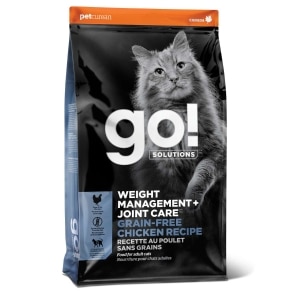As a cat owner, you want to provide your furry companion with the best nutrition possible. One important aspect of cat nutrition is the carbohydrate content of their food. Cats are obligate carnivores, which means they require a diet primarily consisting of meat. Therefore, opting for a low carbohydrate dry cat food is the best choice you can make for your feline friend’s health and well-being.
Understanding Cat Nutrition
Cats have specific nutritional requirements that differ from other animals. Their bodies are designed to metabolize animal protein and fat efficiently. Unlike humans and dogs, cats lack certain enzymes required for the digestion and utilization of carbohydrates.
Feeding your cat a high carbohydrate diet can lead to various health issues, including obesity, diabetes, and digestive problems. Excess carbohydrates can cause fluctuations in blood sugar levels and may lead to insulin resistance over time. Additionally, high carbohydrate content in cat food often means less protein, which is crucial for maintaining their lean muscle mass.

Credit: www.amazon.com
The Benefits of Low Carbohydrate Dry Cat Food
Choosing a low carbohydrate dry cat food offers several benefits for your feline companion:
- Weight Management: Low carbohydrate diets can help prevent obesity in cats. Since cats are designed to utilize protein and fat as their primary energy sources, minimizing their carbohydrate intake helps maintain a healthy weight.
- Blood Sugar Regulation: By reducing the carbohydrate content in your cat’s diet, you can help stabilize their blood sugar levels and lower the risk of developing diabetes.
- Healthy Digestion: Cats have a shorter digestive tract compared to herbivores or omnivores. A low carbohydrate diet is easier for them to digest and can help prevent digestive issues such as diarrhea and constipation.
- Improved Dental Health: Dry cat food has a natural abrasive action that helps to clean your cat’s teeth as they chew. Opting for a low carbohydrate dry diet can contribute to better dental health by reducing the build-up of tartar and plaque.
Tips for Choosing a Low Carbohydrate Dry Cat Food
When selecting a low carbohydrate dry cat food for your furry friend, keep the following tips in mind:
- Read the Ingredients: Look for cat food brands that list high-quality animal protein as the primary ingredient. Avoid those that list grains or fillers such as corn, wheat, or soy, as these are high in carbohydrates.
- Check the Carbohydrate Content: Look for cat foods that have a carbohydrate content of 10% or less. It’s essential to check the nutritional information and choose a brand that prioritizes protein over carbohydrates.
- Consider Your Cat’s Age and Health: Different cats have different nutritional needs. Consult with your veterinarian to determine the appropriate low carbohydrate diet for your cat, taking into account their age, overall health, and any specific dietary requirements.
- Transition Gradually: When introducing a new cat food, it’s important to transition gradually to avoid digestive upset. Mix a small amount of the new low carbohydrate dry cat food with their current food and gradually increase the proportion over several days.

Credit: www.petvalu.ca
Frequently Asked Questions Of Low Carbohydrate Dry Cat Food
What Are The Benefits Of Low Carbohydrate Dry Cat Food?
Low carbohydrate dry cat food can help maintain a healthy weight and prevent diabetes in cats.
Is Low Carbohydrate Dry Cat Food Suitable For All Cats?
Yes, low carbohydrate dry cat food is suitable for all cats, including those with weight management or diabetes concerns.
How Does Low Carbohydrate Dry Cat Food Promote Weight Loss?
Low carbohydrate dry cat food helps cats lose weight by reducing the intake of excess carbohydrates that can contribute to weight gain.
Can Low Carbohydrate Dry Cat Food Prevent Diabetes In Cats?
Yes, low carbohydrate dry cat food can help prevent diabetes in cats by regulating blood sugar levels and promoting a healthier lifestyle.
Conclusion
Feeding your cat a low carbohydrate dry cat food promotes their overall health and addresses their specific nutritional needs as obligate carnivores. By prioritizing protein and reducing carbohydrate content, you can help your feline friend maintain a healthy weight, regulate blood sugar levels, improve digestion, and enhance their dental health. Remember to choose a high-quality brand that aligns with your cat’s nutritional requirements and consult with your veterinarian for personalized dietary recommendations. Your furry companion will thank you for providing them with the best nutrition possible!

Leave a Reply